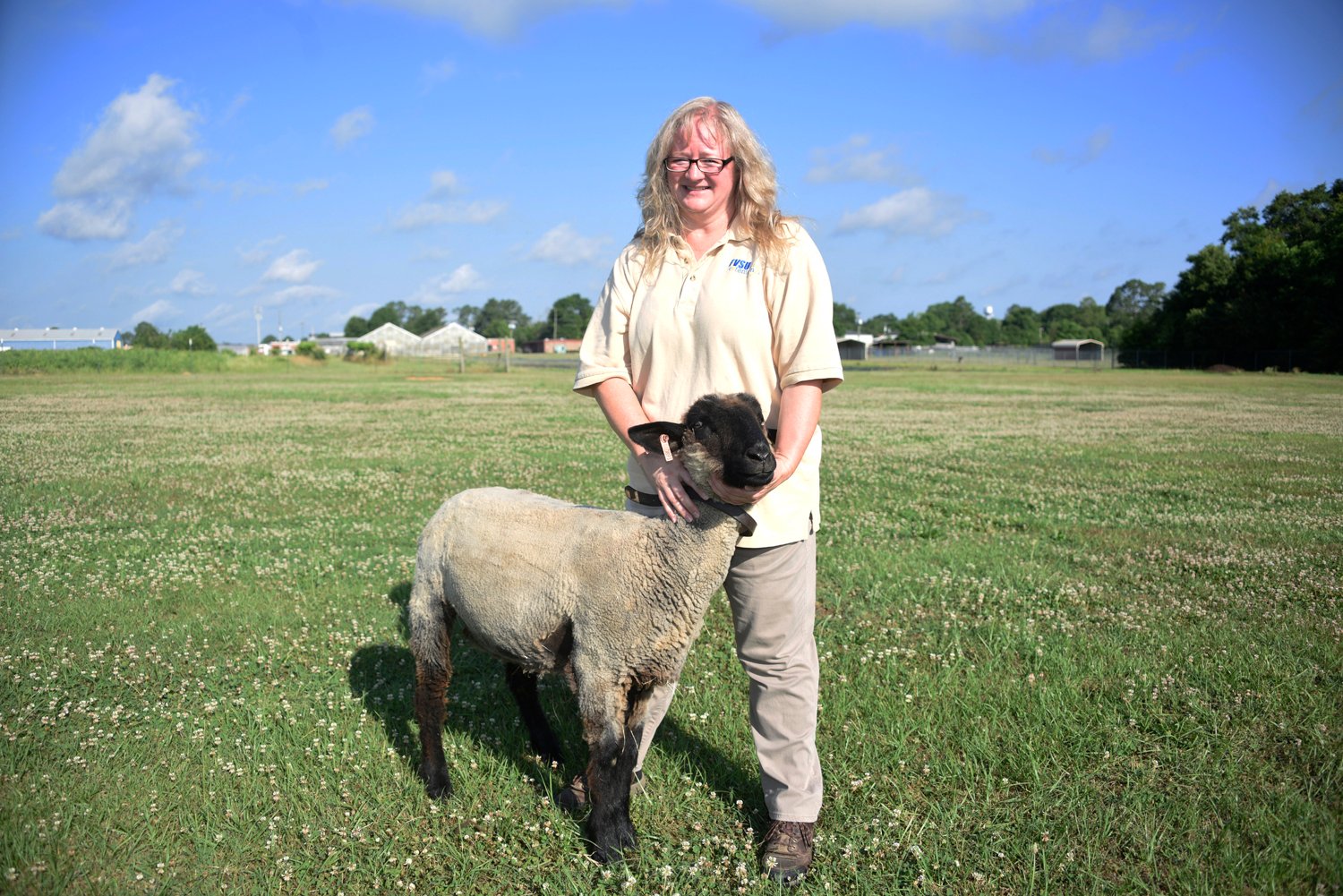Farmers and ranchers in Georgia seeking information about the care and production of sheep and goats can turn to Fort Valley State University’s Cooperative Extension Program for assistance.
Dr. Niki Whitley, FVSU Extension specialist and senior lecturer, is the small ruminant (sheep and goat) specialist for the state of Georgia. Whitley assumed her role in August of 2015 when she arrived to the university to replace retired Extension and small ruminant specialist, Dr. Will Getz, who served in the same capacity. “When I was hired in this position, it was already part of my job for FVSU,” Whitley said.
The Extension specialist possesses more than 21 years of experience working with sheep and goats. Whitley said her role is due to FVSU’s partnership with the University of Georgia’s Extension program in filling the state’s need for a small ruminant expert. Because of this collaboration, Whitley is referred to by FVSU and UGA Extension personnel as Georgia’s sheep and goat specialist.
Some of her duties include helping to train FVSU and UGA agents and their clients about small ruminant nutrition, breeding and parasite control among other topics. She also serves as the co-coordinator for the Georgia Junior Livestock Goat Shows held in February and October, assists with the sheep and goat exhibitions at the Georgia National Fair, and organizes the outdoor small ruminant section at the Sunbelt Agricultural Exposition.
The FVSU Extension specialist enjoys her role as the state’s small ruminant expert and considers her hands-on experience in Extension an asset. She said she feels comfortable providing information to goat producers and clients. “I can also talk to people practically about small ruminant care and not sound like I just learned it in the classroom,” Whitley said.
Reggie Stroud, a goat farmer in Houston County, averted a major problem by heeding the advice of Dr. Whitley.
Stroud said he didn’t know what to do when one of his goats stopped feeding her kid (offspring). Stroud reported the problem to Leon Porter, FVSU’s Houston County program assistant, who informed Whitley of the symptoms. After visiting the farm and examining the animal, Whitley indicated that it looked like the goat acquired an infection that made nursing painful. She proceeded to provide him information on how he could handle the problem.
“Dr. Whitley was there in a very timely manner. She’s a very personable individual, and I enjoyed the time I had working with her,” Stroud said. I felt very fortunate that the services she provided were available to me, he added.
The Houston County farmer said Whitley’s assistance helped to save the life of the goat and her kid and saved him a lot of money.
In addition to her one-on one visitations, Whitley also provides group training. In 2018, she conducted more than 26 seminars attended by more than 2,100 people. The FVSU Extension specialist also conducted a presentation in Canada.
During these events, Whitley spends time debunking myths and rumors on how to care for the animals.
“One of the most popular myths is that goats are easy to raise. People say ‘Well I heard you just throw them out there’, and that is not true. Goats are the hardest livestock to raise,” Whitley said. She said that goats evolved as browsers (eating above shoulder height) to eat twigs and branches and not as grazers (eating off the ground) to eat grass only. The FVSU professor said grazing increases the animal’s chance of ingesting parasites such as barber pole worms, which can be fatal.
Another fallacy Whitley debunks is that goats will eat everything. “They will chew on almost anything out of curiosity, but they are actually fairly picky eaters,” Whitley said. Whitley’s strongest suggestion to anyone seeking to start a goat or sheep farm is to attend training sessions, learn about parasite control and produce a plan to determine the target market. “Determine what your goals are, and that will determine what operation you want to have,” Whitley said.
To learn more information about goats and sheep, or to schedule an appointment, contact Whitley at (478) 825-6577/6296 or whitleyn@fvsu.edu.

